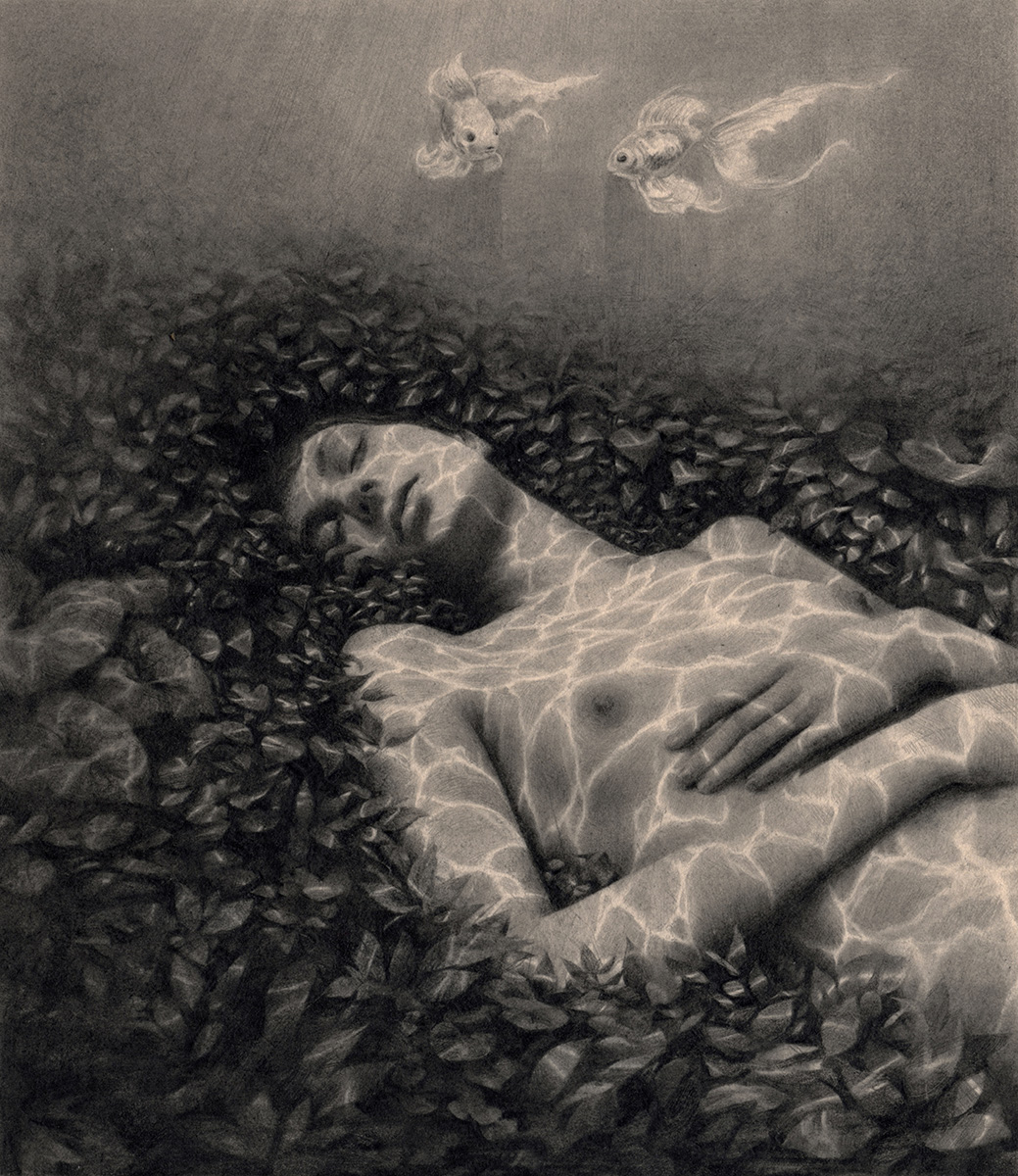According to hedonists, the purpose of art is, above all, to produce pleasure. However, Miles Johnston disagrees: it is to reflect the world in all its facets, and in doing so, to create something deeply - and paradoxically - personal and universal. His pieces are a kind of love letter to light and form, and although life is not all about pleasure, it is the pleasure of "being" that makes it worth living.
According to hedonists, the purpose of art is, above all, to produce pleasure. However, Miles Johnston disagrees: it is to reflect the world in all its facets, and in doing so, to create something deeply - and paradoxically - personal and universal. His pieces are a kind of love letter to light and form, and although life is not all about pleasure, it is the pleasure of "being" that makes it worth living.

For Miles (UK, 1993), inspiration can be everywhere; in emotions, in music, in philosophy, and even in mathematics. Everything matters, because everything is a medium for exploring the big questions of life: who we are, why we are here, and what is this world we inhabit. It's the visceral depth that this artist aspires to reach, with all its complex layers.
Why did you decide to create art?
That's a tricky question to answer, my intentions for why I create art have evolved over time. I suppose I always liked drawing as a kid, but not for any lofty reasons, just the simple universal joy of putting marks on paper. As a teenager I decided to really try and dedicate a lot of time everyday to improving so I could try and make it my living, I think it felt like an opportunity to escape the looming anxiety of working life (naive in hindsight, I can tell you now even though I love making art it definitely isn't an escape from work). Now as an adult I think it serves an almost existentially important role, it has really become a big part of my identity and how I feel I can contribute something to the world in some tiny capacity. I want to make drawings and paintings that give people a chance to reflect on their own lives and create moments of connection between people.
Would you consider yourself a hedonistic person?
Broadly speaking no, I think I am more interested in a more widely defined sense of wellbeing and meaning than just seeking pleasure directly. If I were a hedonist, in the sense I understand the word, then I never would have been able to become the kind of artist I have aspired to be. It has involved so much sacrifice, frustration, boredom and struggle to get through all the practice. My process is very labor intensive. That said it is a labor of love and ultimately pays off in a form of pleasure and satisfaction down the line. I guess I feel in order to attain a kind of deeper comfort and sense of peace and satisfaction in life, one has to be willing to go through challenging experiences [...]. I do think ultimately pleasure of one form or another is what we are all seeking, I just think that the human animal requires some sort of challenge to find a kind of existential comfort. I am most interested in equanimity, given that suffering is unavoidable, I want to know how to be at peace with our lives.
Do you think there is a connection between hedonism and creativity?
I think a lot of creative people are motivated to make the things they make by an inherent longing for something more out of life. We often create the things we want to feel or experience in the world the most. On some level I suppose that implies a kind of aspiration towards some form of pleasure [...]. I feel that creativity is present in absolutely everyone in a wide variety of forms. I know that I create simply because it feels like I have to, it is just part of who I am, often at the expense of pursuing more direct forms of pleasure.
What would you consider to be life’s little pleasures?
For me it is the small easily overlooked sensory experiences that are all around you when you quiet the mind. Wind on your skin at night, the smell after rain, the beauty of wood grain on a table. When you learn to make art and aspire to create beautiful things, you start to notice how effortlessly the universe produces an infinite array of sensory beauty.
Originally translated from The Pleasure Issue, published May 2023.Full stories and credits on the print issue.
Most popular
.png)
.png)

Relacionados



.jpg)

